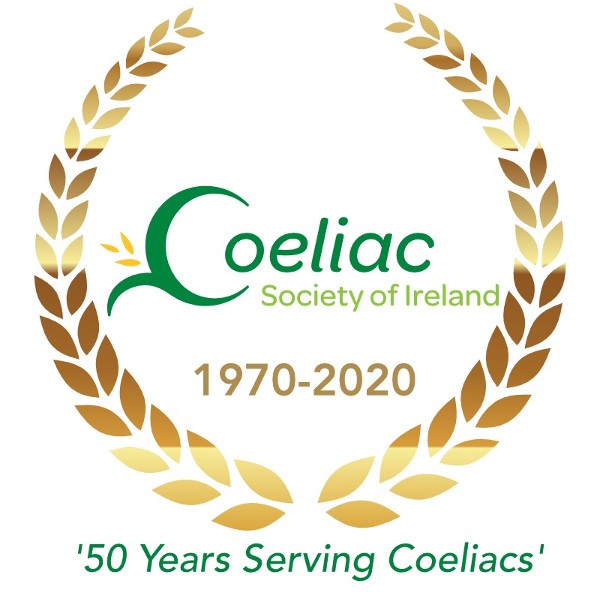
The Coeliac Society of Ireland is to mark its 50th anniversary by attempting to set a record for having the world’s largest ever gluten free internet tea party.
The Society wants people with coeliac disease who are in lockdown or cocooning to logon to a Zoom tea party on 14th May to support each other and share their experiences of living with the condition.
The tea party is part of celebrations taking place amid challenging conditions during Coeliac Awareness Week (11th-17th May), which is sponsored by Promise Gluten Free. The coronavirus pandemic and social distancing guidelines has forced the cancellation of many fundraising and activities and awareness events that were planned for the week, however, the Society is still determined to ensure that Ireland’s gluten free community stays connected and encourage the rest of society to ‘Think Coeliac’ during awareness week.
Coeliac Society CEO Gill Brennan said: “The online gluten free tea party is a great way for the coeliac community to stay connected and support each other during a very different kind of Awareness Week this year. It will take place on National Gluten Free day and anyone can join in – just make yourself a cuppa, grab your favourite gluten-free treat and login to the Zoom party. The details are on the Coeliac Society website. We’re hoping to get enough people to set a world record for an online gluten free tea party for the first time.
“The tea party is part of a week of interactive online and social media activity we’re planning for Coeliac Awareness Week. We’ll have something different every day, including live information and advice sessions, dietetic clinics, and a gluten-free cooking competition with a One For All €500 voucher up for grabs. We also will have dozens of stories that have been shared by Coeliac Society members of all ages about living with the disease, and how being coeliac in Ireland has changed over the past 50 years.”
An estimated 50,000 people in Ireland have coeliac disease – that’s around one in every 100 people – yet as many as 37,000 are undiagnosed. Much has improved around the understanding of coeliac disease since the Society started in 1970 with one person in an office and phone in Dublin in 1970, yet the biggest issue remains people struggling to receive a timely diagnosis.
The Society wants more GPs and health professionals to ‘Think Coeliac’ when patients present with unexplained gastro issues. Gill said: “Over the past 50 years we have seen massive changes in the understanding and awareness of coeliac disease – yet we need to see more. When we emerge from the shadow of the coronavirus, there will still be more than 37,000 people in Ireland suffering unnecessarily from a lifelong autoimmune disease when they don’t have to.
“Every coeliac has their own diagnosis story. Many of them suffer often for years with symptoms such as indigestion, abdominal pains, bloating, diarrhoea, constipation, nausea, anaemia, and fatigue, because they were misdiagnosed. More GPs and health professionals need to ‘Think Coeliac’. Routine testing of patients who present with recurring gastro issues could alleviate much suffering caused by years of misdiagnosis.”
The only treatment for coeliac disease is a strict gluten free diet. Fortunately, it has never been easier to access gluten free food products and ingredients.
Mary Horkin, senior marketing manager of Promise Gluten Free bakery, the sponsor of Coeliac Awareness Week, said: “The choice of food available now for coeliacs and others who are gluten intolerant is remarkable – there are gluten free alternatives for almost everything. Bread, cakes, pasta, cereal, chocolate, beer, ice cream – it’s a far cry from the early days of the Coeliac Society, when members had to source their gluten free bread from a chemist.”
Emma Conway, who has been a member of the Coeliac Society since the 1970s, believes that both the food and attitudes have changed since her childhood. She said: “Back then gluten free bread was either like a door stop or your lunchtime sandwich became a pile of crumbs around slices of cheese. I would have been in my twenties before I ever had pasta. My first ever chocolate profiterole was four years ago. I used to travel to Newry, in the North, to get gluten free fish fingers and chicken nuggets before they became widely available here. That’s only 10 years ago.
“It’s now understood, far more than when I was younger, that many people are gluten free for medical reasons. Allergies and intolerances are part of the world we live in. I once went to McDonald’s in Sheffield and ordered a burger without the bun. When it arrived the server had written ‘Weird Burger’ on the package. We’ve mostly moved on from that attitude.”
